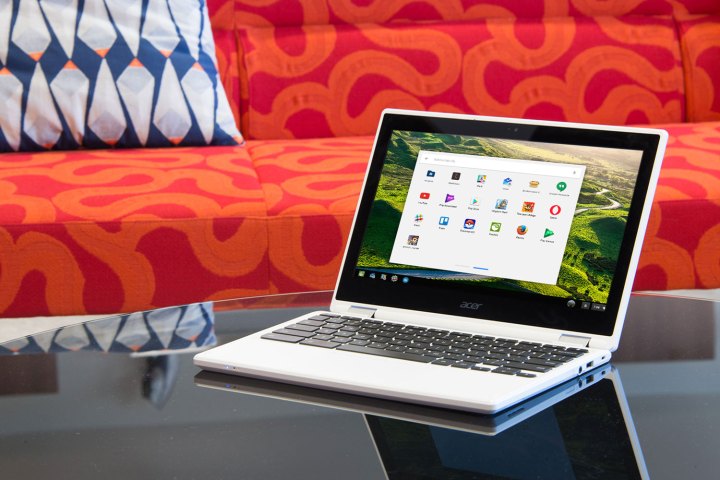
Andromeda is the rumored code name for the OS, and Android Police says it has been sitting on a rumor that Google may demo the OS in October. What made the company share it now? A tweet from Hiroshi Lockheimer, senior vice president of Android, Chrome OS, and Google Play at Google.
We announced the 1st version of
Android 8 years ago today. I have a feeling 8 years from now we'll be talking about Oct 4, 2016.— Hiroshi Lockheimer (@lockheimer) September 24, 2016
“We announced the 1st version of
While all the aforementioned devices are major products that mark a major hardware push from the country, an
Google tells Digital Trends it does not comment on rumors and speculation.
This year, Google Play Store landed on Chromebooks. In 2015, sources told the Wall Street Journal that Google was going to merge the two operating systems, but a final version would not be available until 2017. Still, the report said we would see the first look in 2016.
Since Google’s October 4 event, information has continued to trickle out providing more hints and allegations about Andromeda, 9to5Google reports. For example, the same tipster that provided to the publication prior to the October event has indicated that two “major OEM’s” are in the process of creating Andromeda devices via access to the merged operating system’s development kits. Initial hardware could come as soon as the second half of 2017.
Furthermore, according to the tipster,
The recent leaks seem to point to a more significant Google event in 2017, where not only an Andromeda-enhanced
Google has been relatively quiet over the last few years, with
Story originally published in September 2016. Updated on 11-15-2016 by Mark Coppock: Added new Andromeda and Google hardware rumors.
Editors' Recommendations
- Android 15 release date: When will my phone get the update?
- Android phones finally have their own version of AirTags
- These are the best Android 15 features you need to know about
- When is my phone getting Android 14? Here’s everything we know
- Android 15 has two hidden features you’re going to love

